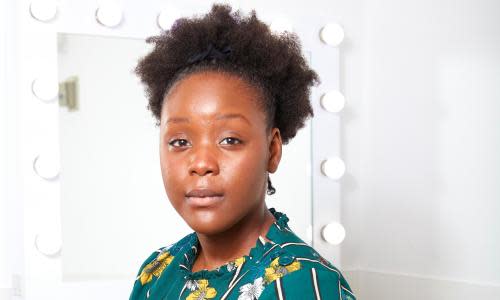Actor’s homophobia made her commercially toxic, tribunal told

A sacked actor who would have refused to play the role in which she had been cast as a lesbian because it was against her Christian beliefs made herself “commercially toxic” and her continued employment would have forced the show’s cancellation, a tribunal has heard.
Seyi Omooba was due to play Celie in a production of The Color Purple at the Curve theatre, Leicester, but was removed from the show in March 2019 after the emergence of a Facebook post from 2014 in which she said homosexuality was not “right”.
Omooba, who is suing the Curve and her former agency Global Artists for breach of contract and religious discrimination, also said in the post that people could not be born gay.
The tribunal, which started last week, heard that Omooba had a “secret red line” about not being willing to play a gay character, which put her on a collision course with the theatre.
Omooba said she had not read the script in full before accepting the role, and had not asked the director or producers whether they intended Celie to be played as a lesbian in the production.
Tom Coghlin QC, representing Leicester Theatre Trust, described that as “unbelievably unprofessional” and suggested Omooba’s conduct would have left the theatre “high and dry” and without a key performer as opening night approached.
Omooba replied: “You can say that, but in so many instances people pull out and people find a way to make it work.”
Christopher Milsom, on behalf of Global Artists, said Omooba accepted that the Facebook post represented a “head-on collision” with the views of others and that she was “commercially toxic” for a period of time. “Nonetheless, she says: ‘Tough, my beliefs trump everything,’” Milsom said.
In closing remarks on Monday, Coghlin said Omooba knew she was being called a hypocrite for playing a gay character. “She realised that there was a significant risk that Celie would be required to be played as gay. Her evidence was to the contrary and during cross-examination she sought to say that night was day and there was no possibility that Celie was going to be played as gay.”
Last week the tribunal heard that Global Artists feared an exodus of talent and staff had it continued to represent the actor. Michael Garrett, the agency’s owner, said two members of staff had considered their position after the post was revealed, and he had thought the company could face “catastrophic” consequences if it didn’t part ways with Omooba.
The Curve’s chief executive, Chris Stafford, told the tribunal that Omooba’s continued involvement in the production would have been a “complete disaster” and led to potential boycotts and protests.
The tribunal heard that Omooba would have refused to play Celie as a lesbian on religious grounds, which Stafford said would have forced the production to be axed.
“To get to the stage of rehearsals and then for the lead actor to say she wouldn’t play a lesbian, our theatre’s credibility would be shot … we would have had to draw a line under the production and cancel The Color Purple,” he said.
The tribunal will come to a conclusion on 18 March when a judgment will be made.

